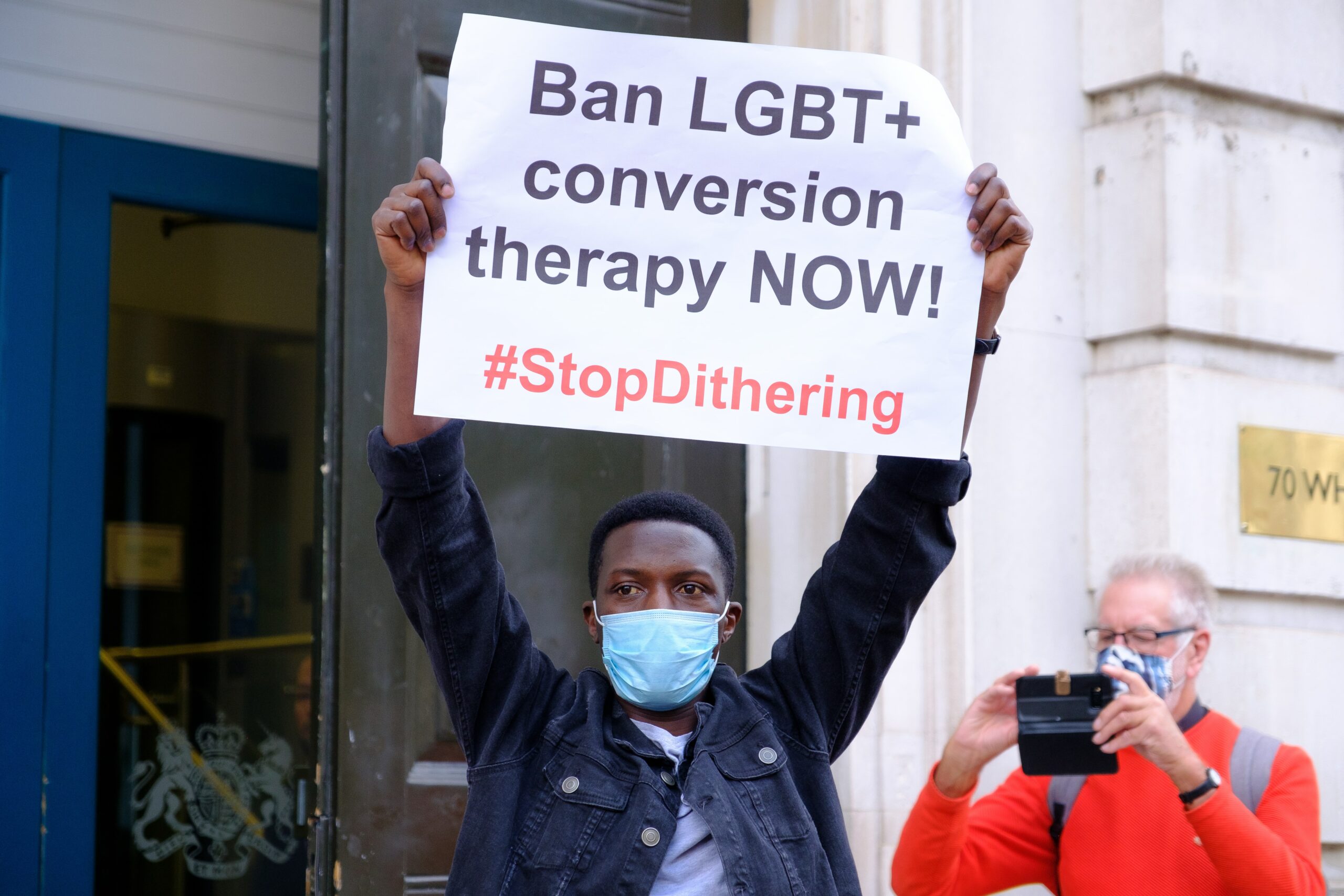
Do critics of ‘conversion therapy’ live in a fact-free zone?
“We are committed to building a society in which conversion therapy no longer takes place,” says the UK Minister for Women and Equalities, Liz Truss. Legislation to enforce this could be passed this year.
For legislators around the world, bans on “conversion therapy” are catnip.
The French National Assembly unanimously passed a ban last month. Canada’s lower house passed a ban in December, also unanimously. Other countries with bans include Brazil, Ecuador, Malta, Albania and Germany. In Australia, the jurisdictions of Queensland, the ACT and Victoria have passed bans. In the United States, 28 states have effectively banned it.
Just two problems.
First, in 2022, what is “conversion therapy”? Abusive violence no longer happens – at least not in the countries which are banning it.
Second – and even more important –where is the peer-reviewed expert proof that “talking conversion therapy” is harmful?
A lot is at stake. The terms of the various laws vary, but some of them would prevent psychologists, pastors, or even parents from dissuading children from a belief that they are gay or lesbian or trans.
An article published this week in a leading peer-reviewed journal, Frontiers in Psychology, claims that there is none. American sociologist Paul Sullins states bluntly that “even for persons for whom SOCE has had no efficacy, there is no discernible psychosocial risk”.
Sullins analysed data from the Generations study gathered by the Williams Institute, an LGBT thinktank in California. This is the first long-term, five-year study to examine the health and well-being across three generations of American lesbians, gay men, and bisexuals.
He compared SOCE alumni — people who have undergone “conversion therapy” — with non-SOCE LGB persons. Astonishingly, for anyone informed only by the overheated media coverage, he found no difference between the two groups for several measures of behavioural harm, including suicidal morbidity, psychological distress, self-harm (cutting), and substance abuse.
True, SOCE alumni probably did experience stress and stigma over their lifetimes – but they did not fare worse than the non-SOCE group. Even in measures like internalised homophobia and the number of days of poor mental health in the past month there was no difference. There was at least one difference — they were more likely to be out about their sexuality.
Bold claims – but the UK government’s own report candidly admits that the evidence base is very weak.
Most people believe that “conversion therapy” is always and everywhere wrong, like female genital mutilation, so the no-harm theory requires some unpacking.
From a policy perspective, the real question is not whether a gay or lesbian person has memories of a stressful experience, but whether its effects were truly long-lasting. It’s important to bear in mind that someone who seeks out therapy must already be troubled.
Sullins found that: “Those who had undergone SOCE were no more likely to experience psychological distress or poor mental health, to engage in substance or alcohol abuse, to intentionally harm themselves, or to think about, plan, intend or attempt suicide, than were those who had not undergone SOCE.”
Sullins acknowledges that several studies have reported harm following SOCE, particularly increased suicidal behaviour. But only four of these used a random sample and all four failed to distinguish suicidal behaviour before and after SOCE. Sullins’s study, on the other hand, is based on 1,518 people who self-identified as LGB in a Gallup survey of 350,000 American adults.
He found that suicidal behaviour is much higher before SOCE (which probably prompted requests for therapy) but not afterward. In fact, in a forthcoming critique of an influential study by gay suicide expert John Blosnich, Sullins argues that people who have experienced SOCE are less inclined to commit suicide:
“Experiencing SOCE therapy does not encourage higher suicidality, as they claim; rather, experiencing higher suicidality appears to encourage recourse to SOCE, which in turn strongly reduces suicidality, particularly initial suicide attempts. Restrictions on SOCE deprive sexual minorities of an important resource for reducing suicidality, putting them at substantially increased suicide risk.”
Let that sink in. If Sullins is right, depriving LGB people of the possibility of seeking therapy could lead to more suicides, not fewer.
Extraordinary claims require extraordinary evidence. It is extraordinary that the UK government is contemplating the criminalisation of talking therapies. Common sense suggests that people need to talk about their sexual anxieties. Where is the extraordinary evidence that common sense is wrong?
“A habit of basing convictions upon evidence, and of giving to them only that degree or certainty which the evidence warrants, would, if it became general, cure most of the ills from which the world suffers,” said Bertrand Russell.
Unfortunately, virtue signalling is higher on the list of Liz Truss’s priorities than gathering evidence. She says bluntly: “it is the view of the government that one incident of conversion therapy is too many.”
